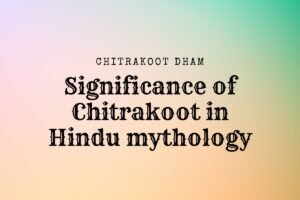I hail from a small town in Uttar Pradesh. People here are still following centuries-old traditions like Ghunghat(Parda). People have accepted these traditions as their Hindu culture(Or Indian culture).
A few months back, I got married to a girl who comes from a progressive family. She was unaware of most of the traditions we had in our hometown. While she liked most of them and followed religiously, she had hardtime with keeping up with Ghunghat.
She felt suffocated in Ghunghat and even fell while walking down the stairs a few times as she couldn’t see clearly.
She asked me why an educated guy like me accepted these women oppressing traditions. I don’t think it is about respect.
I explained to her that people around here give too much value to these traditions. I requested her to adjust for some time as we will be moving back to Bangalore soon. She agreed to it half-heartedly.
It got me thinking that these traditions don’t hold any real value. People are just following it as their ancestors did the same thing.
I am not the kind of person who goes with stupid traditions. I needed to know from where it originated.
I hardly saw any women using Ghunghat when I lived in Chennai and Bangalore. I never saw evidence of Ghunghat culture in ancient Indian epic books — Mahabharata and Ramayana. This Ghunghat tradition prevailed in northern India, around U.P, Haryana, and Rajashthan.
After digging, I found that Ghunghat (Parda) tradition has nothing to do with Indian culture or Hinduism. It comes from Islam. Just like Hijab and Burqa.
Married women either cover the whole face with full Ghunghat or at least cover the head with a dupatta — Just like the burqa and Hijab in Islam.
Mughals ruled India for more than 400 years and imprinted Islamic culture so deep within us that we have accepted them as our own without giving a single thought.
After reading so many articles and references, I got sure that Ghunghat is not Indian culture or Hindu culture in any way.
I went to my mom and discussed the same. She also understood my point.
I asked my mom if we should not follow this Islamic culture and make a stop to it. She agreed.
I am sharing this as I feel it is necessary to educate people and spread awareness about our Real Indian culture which is very rich, open, and women empowering. Not narrow-minded and oppressive towards women.








